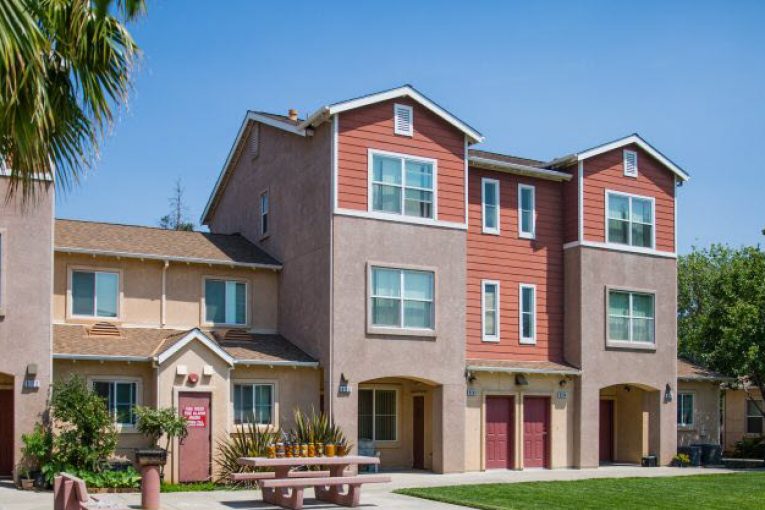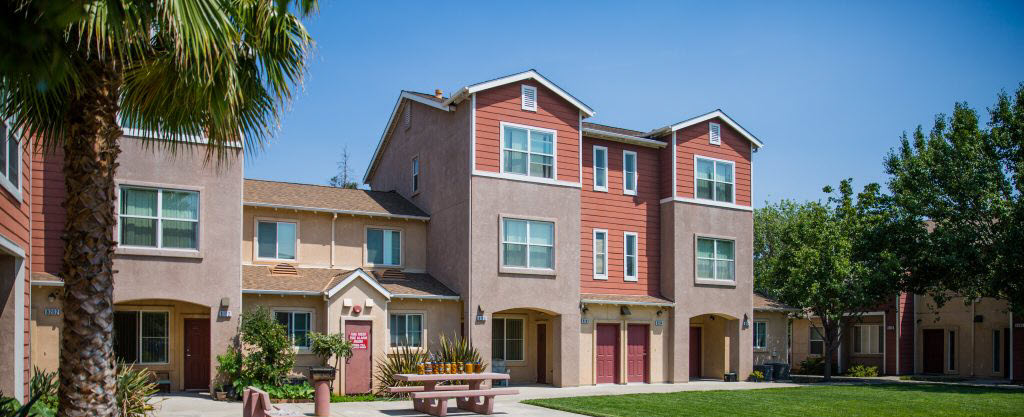

By David M. Greenwald
Executive Editor
Davis, CA – Mark me as one of those disappointed that the council and city keep putting off decision day on a permanent affordable housing ordinance. The council previously extended the temporary ordinance until November 30, 2021.
As staff noted, the extension was made with the idea that the city would be able to make progress on the Downtown Plan as well as complete the Housing Element which had initially been expected by May 2021.
Staff however, acknowledges, “delays due to the COVID-19 pandemic, as well as shifting certification requirements from the California Department of Housing and Community Development (HCD) throughout the development of the document resulted in the 2021-2029 Housing Element not being adopted until August 2021.”
The current ordinance, adopted back in 2018, after AB 1505 reestablished local authority following the Palmer Decision, “temporarily establishes an alternative affordable housing target of 15% by the bed, bedroom, or unit with a 5% extremely-low, 5% very-low, and 5% low-income mix.”
Further, “The current ordinance also temporarily allows the City Council to consider a myriad of factors in determining whether to approve an alternative affordable housing proposal, such as whether the developer makes a large infrastructure or transportation contribution.”
At this point, it is not clear what the advantage is in waiting – unless it is just a city bandwidth issue. The Housing Element is done. Downtown Plan will apparently come before council in January. The General Plan update could well follow that but if history is any guide, that will be a long and drawn out process (maybe a war of attrition).
My first preference would be for the state to reinstate the increment tax for at least affordable housing if not outright redevelopment. Given that the legislature has not made a real dent there, I am not optimistic.
Can we do a local ordinance with a parcel tax or perhaps a utility user tax? The short answer is yes. The longer answer is to question whether  that can really generate enough money to make a difference.
that can really generate enough money to make a difference.
While I believe that overall we need to find ways to build more housing in Davis – affordable housing, subsidized housing, inclusionary housing is really the key to making housing affordable for young families with children in places like Davis.
The problem is that it remains really expensive to build housing and the only real way to build affordable housing is attached to market rate.
At the recent council meeting someone brought up Sterling as an example of a project that did a reasonable job at affordable housing.
Sterling managed to carve out a land dedication site on a relatively small site. But let’s look what it took to do this.
Mutual Housing received $9.4 million in Prop 1 funding to create 38 affordable apartment units (71 beds) on land adjacent to the Sterling market-rate student housing complex.
That’s just under 20 percent of all units. But if you go by the bed, it’s 71 out of 727, just under 10 percent.
That’s what it took to develop just 38 affordable units or 71 affordable beds – a land dedication plus $9.4 million in funding from the state.
Let me put this in further perspective here – Robb Davis could not even get a $50 a year parcel tax for affordable housing (and some other things). To get about $3 million a year, we would need about $150 parcel tax – the size that was defeated for roads in 2018. That would mean about three years of parcel taxes to generate enough affordable housing for about 38 units or 71 beds.
And that doesn’t even include the land to do it.
People want to criticize Nishi for not going land dedication – I think they have a point, although it was interesting to see that in 2018, WDAAC was criticized for doing a land dedication even though they were able to generate 150 affordable senior apartments for their efforts.
DISC on the other hand, had it been passed by the voters would have generated another 153 units of affordable housing.
Can we do more? Yeah, I would absolutely like to do more. But there are problems here.
One is that really in order to do affordable housing for the most part it has to be as part of a market rate housing. And frankly, Davis is going to be hard pressed to have the kind of large market rate projects that would generate substantial affordable housing. It took a Measure J vote on a project like WDAAC to generate 150 units. DISC while not primarily a housing project could have generated another 153 units, but it went down to defeat.
And yes, the same people pushing for more affordable housing are the same people who have opposed most of the above named projects.
Right now there is a limited exemption to Measure J for projects that are affordable housing. But that exemption is limited.
“The exemptions written by the original drafters of J/R/D were fine in concept, but have so many strings attached that they are unusable–and have never been used. We could fix this by removing the problematic language, said Dan Carson in June.
“For example, in order to use the affordable housing exception, an applicant would have to prove that no other site anywhere in the city is available for affordable housing – a daunting if not impossible barrier,” he pointed out.
Should we modify it to allow more projects have exemption from citizen votes?
If the September Housing Element discussion is any indication, perhaps not. The same people calling for more affordable housing are unwilling to modify Measure J it would appear to facilitate that.
If you want more affordable housing then – something has to give here. I understand that some would prefer the requirement go back to 35 percent or at least be higher than 15 percent – but even projects like Sterling which are aggressive still end up in that range (20 percent of units, less than ten percent of rooms).
In general, more affordable housing is going to mean more market rate housing and it will probably mean more peripheral housing. That’s the reality unfortunately that we face.


You support Measure D but lament its consequences. That is so pathetic.
Move to Woodland.
Though truth be told, it ain’t that cheap in the new developments in Woodland, either. Despite never having met it a development it didn’t “like”.
By the way, new stop sign coming on Road 102 / Road 27 (as a result of all the development in Woodland), for all of the CostCo-bound travelers from Davis. I believe another one is in the works as well (just beyond Road 27, entering into Woodland itself). Maybe a stoplight there, not sure.
“Progress”.
For those concerned about Affordable housing (and how it relates to the city’s requirements), it should be noted that both Sterling and WDAAC were subject to the city’s previous requirements (and are the last two that were subject to it).
And your housing is ‘affordable’, right? So are you not concerned about affordability for others? Or, just mechanisms for how others can have what you have… to whatever degree? Honest/fair questions… since you seem so interested in the topic…
And yes, the same questions could be asked of David G and all others participating… NOT trying to pick on Ron O…
Or, do some feel their housing is unaffordable? Or they want more, for a lower cost? How much is ‘personal’, how much is theoretical/philosophical? Ownership (with tax/estate values) or rental (neither)? Everyone opining, should consider their situation/wants, and what they expect others to pay for them, and/or for ‘others’… seems like fair/honest questions…
But suspect will be ‘moderated’/deleted for not being PC…
The comment to which you’re replying to addressed Affordable (subsidized) housing. It was not a personal comment.
Regarding “affordable”, everything in this valley is “affordable” compared to the Bay Area (or parts of the Sierra.) The term “affordable” is a relative term – and is contrasted with income.
What’s quite affordable to some is not affordable to others.
You’re asking if I’m concerned about affordability for others? It depends upon context/factors. For example, I’m not too concerned about those who can’t afford Tiburon. Which means that I’m not concerned about myself, in that example.
Mark me as one of those fed up by those who think an ordinance will make all with the world… I can think of ten very old ordinances/laws that have proven not to make changes…
Bottom line… any affordable housing laws/ordinances tend to ignore some basic facts… new green/energy efficient laws have driven up the costs of new housing… Covid/supply chains same… the DeRkeD measures, locally, same… affordable housing means “ownership” to many… oh, inflation and interest rates are going up…
Bigger bottom line… some think ordinances, laws will make housing (rental or ‘ownership’) more affordable… to whom, what level of amenities/’rights’ (to some)? The $$$ has to come out of someone’s pocket? Whose? “Rich”, middle class, all? It s a ‘zero-sum’ game… reality… if it comes from the middle-class, makes their housing less affordable (duh!!!!)
I support decent housing for all… I do not support “everything I want” housing for all… yeah, I’m a jerk… I’m willing to contribute to basic, decent housing for all… but not for all the “bells and whistles” for all… my grandparents, parents, my generation, and our kids never were ‘guaranteed’ that… but we were “privileged”… so I’m an insensitive, asinine jerk who only contributes ~ $20 K in charitable contributions each year (over $10k for housing, support), some in state/local taxes (which conservative Republicans have decided I can’t even deduct 15% of my taxes over $10 k, and am there), and yet folk want me to do more.
How much are “affordable housing” folk doing to put their money where their mouth is? Simple question… we’ve already put a lot on the table for that… but some seem to want us to “go all in”… little income, little/no assets to help some, but not our own…
The uber-liberals and the conservatives are doing their best to turn off the moderates… folk who actually care on their own… not what they are told to do…
Two + minutes left to correct… denied… guess I stepped on a right or left foot… of someone…
Affording housing is a sham :-\